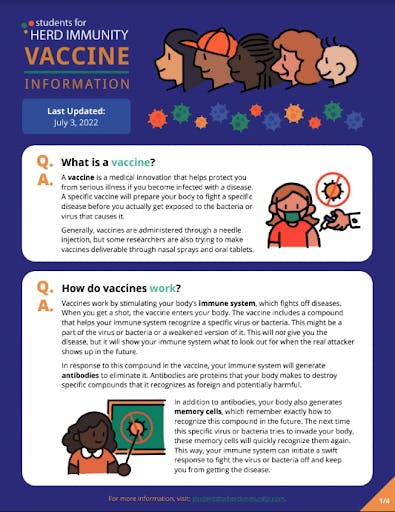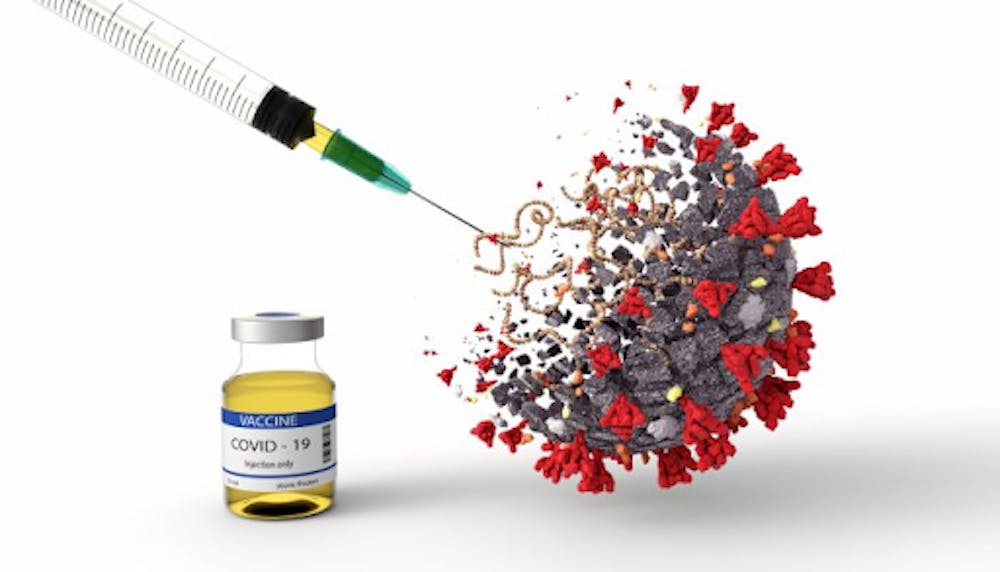As a recent ambassador of the Students for Herd Immunity organization, I learned about the concept of herd immunity and its importance in public health. I found it very intriguing to learn that herd immunity does not mean everyone has to be vaccinated, but, instead, that being vaccinated is vital for not only those who can not only protect themselves, but also those around them.
Herd immunity is a powerful tool in protecting people who cannot be vaccinated or are immunocompromised and can help reduce the chance of exposure for those who can. An understanding of herd immunity is vital, and is a vastly important tool in public health because it’s essential for us to be able to lead conversations in our communities to help create a more educated and informed population.
Vaccines protect a community by preventing the spread of disease among a population, as well as providing effective protection to those who receive them. When a transmitting case comes into contact with a susceptible person, the infection spreads throughout the population. The infectious disease does not spread past the affected individual and is quickly under control within the population if the transmitting case only interacts with people with a stronger immune response because of the vaccine.
Herd immunity, also known as "community protection," is a key advantage of vaccination because this chain of human-to-human transmission can be broken, even if there is not 100% immunity, because transmitting cases do not have infinite contacts (Orenstein and Ahmed, 2017). Herd immunity occurs when a large portion of a population is immunized against a contagious disease, making it unlikely for an outbreak of the disease to occur due to the significant number of individuals who are resistant to it.
With herd immunity, the majority of individuals in a population are able to be protected from contracting an infectious disease. Because the majority of individuals are immunized against the disease, they are less likely to come in contact with a transmitting case of it and are therefore less likely to contract it. This, in turn, helps to protect individuals who are not able to be vaccinated due to an inability to produce antibodies or due to other conditions such as age or immunocompromised status.

Herd Immunity Vaccine Information | Source: Studentsforherdimmunity.com
In some cases, people aren't able to be vaccinated for serious conditions that they might already have, and their chain of treatment can't be disrupted.
Herd immunity can be a powerful tool in providing protection for these individuals, as it reduces the chance of them coming into contact with the disease. People with a weak immune system due to being on drugs such as high doses of steroids or being treated for cancer play a role in not being able to receive certain vaccines like the COVID-19 vaccine.
Herd immunity helps to protect those individuals by providing a shield from the disease, making it much less likely that they will be exposed and have their condition worsened.
Even though COVID -19 isn’t completely combatted, using methods for Herd Immunity has definitely helped to decrease the viral injection among the population. As we continue on, recognizing the necessity of vaccination plays a big role in how we can be more alert and better prepared for epidemics or pandemics like COVID-19, because by being vaccinated we are not only protecting ourselves but also our community.




